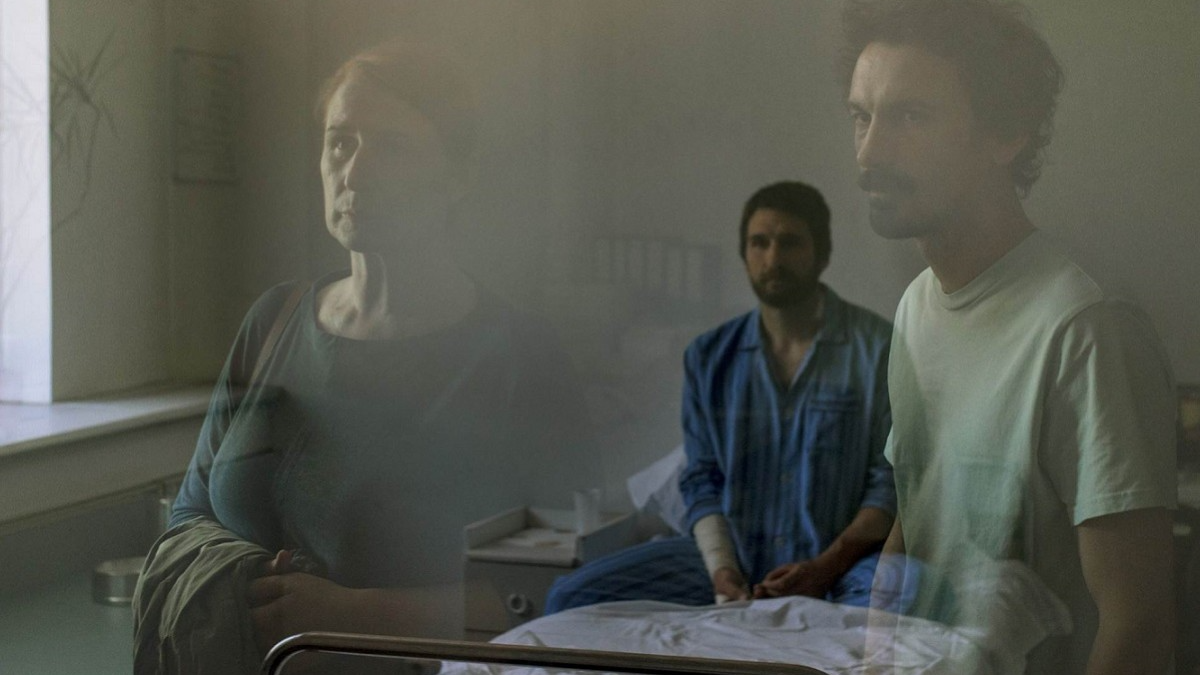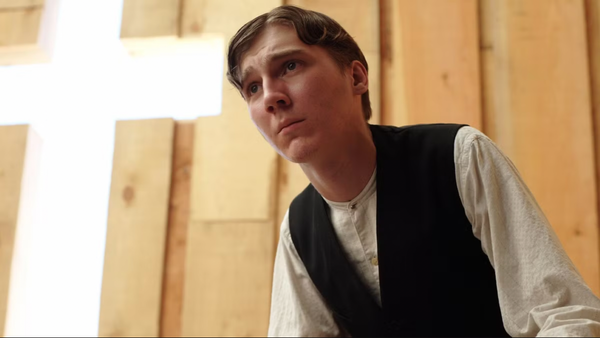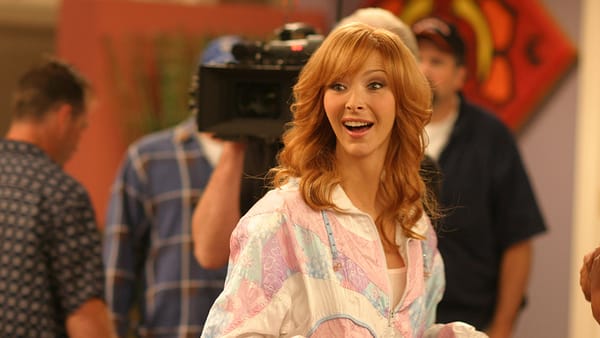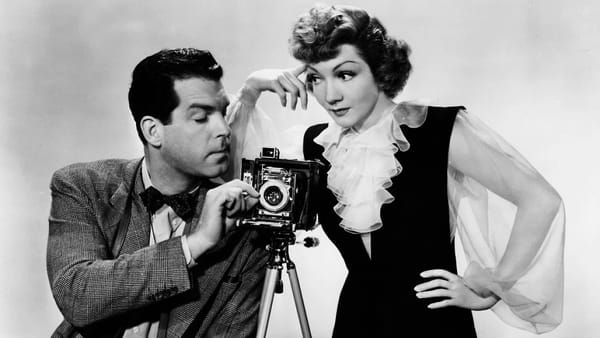If

On Juraj Lerotić's Safe Place, Florian Zeller's The Son and the Netflix series Dahmer - Monster: The Jeffrey Dahmer Story
tw: discussion of depression and suicide
This Be The Verse By Philip Larkin They fuck you up, your mum and dad. They may not mean to, but they do. They fill you with the faults they had And add some extra, just for you. But they were fucked up in their turn By fools in old-style hats and coats, Who half the time were soppy-stern And half at one another’s throats. Man hands on misery to man. It deepens like a coastal shelf. Get out as early as you can, And don’t have any kids yourself. 1971
If one of the aims of poetry is to make visible through words a truth so blinding we struggle to see it in our daily lives, then Philip Larkin’s 'This Be The Verse' should be a contender for the title of best poem of all time. That it has a sort of juvenile, unsophisticated sing-song rhyming pattern only adds to its airs as a nursery rhyme or adage, but also to its sardonic tone, which seems to indicate a bubbling anger barely contained under its smooth, shiny surface.
The same kind of rage is at the heart of many films about “fucked up” people who, sometimes at the eleventh hour, sometimes earlier on, are revealed to be acting out of what can broadly be defined as mommy or daddy issues. Hitchcock’s Psycho is one of the best known examples, but there are many others — Canadian writer and programmer Kier-La Janisse wrote an entire book on the subject, highlighting the ways in which the dynamics at the core of these films intersect with those from her own life.
The book, titled House of Psychotic Women and re-issued in 2022 in an updated edition, is a welcome step towards taking such stories out of the bargain bin of film history, where they are more often than not categorised as trashy caricatures, melodramatic tales in which characters’ hang-ups and their consequences are exaggerated for the sake of good drama but do not have much to do with reality.
One of the many powerful insights offered by the book is that the process of identifying exactly how much of one’s behaviour is made up of involuntary responses to things your parents did or didn’t do, is much more difficult and painful than we may initially imagine. Perusing Janisse’s colossal work on questions of identity and freedom as raised by her own life and as highlighted in many films — perhaps most beautifully in Andrzej Zulawski’s Possession — it is impossible not to face the uncomfortable issue ourselves, and to realise just how profoundly the hooks of family trauma go, hindering our freedom, cloistering our minds, limiting our imagination and our dreams. The product of years of still ongoing work, the book shows with arresting honesty and frankness how difficult, painful, violent yet worthwhile it is to try and detangle ourselves from those unwanted and automatic mechanisms.
Three works from 2022 likewise identify the ways in which family dynamics can contribute to so much confusion and hurt in adulthood or even earlier, when the time comes to be a person alone in the world. What makes these works of particular interest, however, is that they attribute to the family a lot of responsibility for types of behaviours which many still hesitate to blame anything or anyone for, least of all the parents.
Juraj Lerotić’s Safe Place centres on Bruno (played by the director himself), who tries to help his suicidal brother Damir (Goran Marković), or more specifically, to keep him safe from doing any more harm to himself. Based on the director’s own dealings with his real-life brother, it is a portrait of helplessness, and an indictment of health services ill-equipped to deal with such situations. But it also seems to be, to this viewer, a subtle and empathetic lamentation about how emotionally ill-equipped certain types of parenting can leave children, as well as their parents. The two brothers’ mother (Snježana Sinovčić-Šiškov) is also present and her own behaviour is perfectly reasonable, the film never going out of its way to criticise the way she handles this incredibly painful situation. But it is very difficult not to get frustrated at the actions or inactions of all involved.
Perhaps it is knowing that things will not end well which makes it so difficult to watch her act around her son like nothing special has happened; maybe seeing parents behave this way around their distressed children in any situation feels wrong. But the mother isn’t unfeeling: we are granted glimpses of her despair whenever she is alone with Bruno, who remains our focal point throughout this tense 24-hour period. With him, she allows herself to break down, but she does not want to show Damir how scared she really is. This is understandable, especially since one of the very few things Damir says in the film is that he feels bad for putting his family through so much stress. It nevertheless remains extremely tough to watch her being weary of approaching him, or reluctant to ask him any real questions about how he is feeling.
This behaviour is contrasted to some degree by Bruno’s: he is a man of action, breaking down the door to his brother’s apartment in the opening scene then taking the lead in all that follows, as the family is forced to make various practical decisions. Where mother and son meet, however, is in their apparent belief that there is a simple, practical solution to this problem: both of them go through the experience as though through a checklist, weighing the ups and downs of every potential decision in a cold headed, practical manner. It is a completely understandable reaction: this is an emergency, they are trying to regain a degree of control, and nothing says that being outwardly emotional would at all help. But this is a film made, tragically, after the fact, and rather than a straightforward reenactment it seems imbued with a degree of self-reflection.
Safe Place’s very precise visual language places figures against large, often uniform backgrounds: a big naked concrete wall, the blue sky, an imposing landscape. There, the characters appear not only small, but almost pathetic, their efforts futile and desperate, Bruno seemingly running in place. The director has also explained that specific lenses were chosen to emphasise the distance between the viewer and the characters so that the former keenly felt their own inability to intervene, which echoed Lerotić’s own family’s ultimate inability to help his brother.
Beyond communicating this helplessness, however, the film’s visual style and its haunting sound design also contribute to making the world strange, pointing out its contradictions, its emptiness, the feeling that it is both too much and not enough at the same time. Indeed, one of the aspects that makes Safe Place so haunting and memorable long after the end credits have rolled is that, rather than offer a specific explanation or cause for the brother’s suicidal behaviour — or play the usual ‘we just cannot possibly know’ card — it instead suggests a world where, simply put, things do not add up. Although the film is very precisely constructed and shot, unfolding over the compact time of just 24 hours, it is asymmetrical, imbalanced, with elements spilling out of its seemingly smooth contours in various ways. Characters are seen through slightly ajar doors, their faces sometimes partially obscured or framed halfway into the shadows, which creep into even the most peaceful of scenes. The buildings are imposing, but seemingly empty; the sun is shining, but for almost nobody.
Lerotić even breaks the structure of the film itself with a stunning fourth-wall break early on, in which Damir (or in this case, his real-life brother) asks him, from the after-life, why he is making this film. It is of course an imaginary conversation, but it also feels like the most genuine moment of connection and intimacy in the entire film. The brief scene throws into even sharper relief the way in which Bruno and the mother appear in the rest of the film to be basically deluding themselves, caught in some sort of performance of normalcy, unable to truly connect to themselves, their loved ones, or the rest of this uncanny valley.
***
If Safe Place only subtly hints at this strange feeling of unreality and the role of learned behaviours handed down by family, Florian Zeller’s The Son makes it explicit — if you know how to read between the lines. There are indeed those who seem to find the behaviour of Peter (Hugh Jackman), father to the troubled son of the title, to be completely normal and even reasonable, as has been demonstrated by the many negative reviews unfavourably comparing the film to Zeller’s previous effort The Father. But if dementia and its effects — as seen in the latter, much less sophisticated film — are undeniable and undeniably devastating, a competitive and self-centred view of the world and of the self is a less obvious evil, and there are whole systems in place to shift the blame for some of its side effects onto others.
Peter is a consultant living in a trendy flat in New York with his young wife Beth (Vanessa Kirby) and their new baby — he seems the very image of success, until the collateral victims to his winning attitude reappear in his life. When his ex-wife Kate (Laura Dern) informs him that she is worried about their teenage son Nicholas (Zen McGrath), who hasn’t showed up to school for weeks, Peter decides to take on this problem like he would any other, with go-getting optimism and expedient decision-making (in that sense, his reaction isn’t many miles away from Bruno’s in Safe Place). On paper, Peter seems to be doing everything right, getting his son therapeutic help, letting him stay at home when he can’t bring himself to get out of bed, and eventually signing him into a psychiatric facility. But being a successful man also means, for him, not taking any time off to be with Nicholas (or with his toddler, for that matter), never going out of his way to tell him anything nice, and most importantly, having very little time for indecisiveness, even if it comes from his own unwell child.
Zeller here turns the feeling of unreality that often plagues films based on stage plays to his advantage; the way in which the action is restricted to various rooms here becomes a tool to make visible the emptiness that remains in Peter’s life when you take away everything he values. Of his all-important work at the office, we only see a few shots of him sitting behind a desk, listening to some nondescript business discussion, himself just a suit like so many others. From his new perfect life with his new wife and baby, we mostly see his extended absences from the flat and his baby crying. And of his great business sense and intelligence, we only see how much they hurt the ones he loves; at home, his conciliatory tone and bland optimism are just a way to deny the pain of others, and his work responsibilities the perfect excuse for his lack of patience. It is a credit to Zeller’s sophistication that he never clearly states the fact that Peter lives in denial, even if it apparently flew over the heads of many. Peter’s life seems a fake life, one he built up by himself after abandoning the one that didn’t work out before; based on Kate’s constantly apologetic demeanour, and on his habit of downplaying his new wife’s complaints and always impose his will, it seems only bullying keeps his house of cards standing.
These truths, however, are all that Nicholas can see, and try as he might, he cannot make his father see them. He could simply decide to hate his dad, but the damage goes much deeper: Nicholas does not know any other way to be. “I can’t deal with living, and it’s your fault!” he tells Peter in a moment of clarity, a clue which of course falls on deaf ears.
That Peter’s behaviour gives him what many would describe as a successful life, and seems to many viewers perfectly reasonable, suggests that the cause for Nicholas’ anguish isn’t rooted simply in his family but in society at large. There, a man has the right to “reinvent [his] life,” as Peter himself put it, throw out what doesn’t work, and start from scratch. He should be allowed to do this without his ex-wife getting upset, and his son, too, should handle it all without making any trouble. Kate got the memo — Peter is genuinely surprised when she tells him how much the divorce affected her — but Nicholas didn’t, couldn’t.
In a world that often seems unwilling to look beyond traumatic life events (such as losing one’s job, failing at school, or the breakup of a relationship) and chemical imbalances as potential factors for depression and suicidal thoughts, Safe Place and most pointedly The Son dare to point out what, in many cases, should be obvious: that this is a difficult reality to live in for anyone, but especially for young people who haven’t been taught how to bear it, let alone enjoy it. For many, it is not obvious how to cope.
***
That depression and suicide remain so taboo seems inversely correlated to how common they are — the fact that more and more people are struggling, and this from an increasingly earlier age, could suggest it isn’t simply a ‘me’ or ‘you’ problem. By contrast, although serial killers are extremely rare, they are an object of intense fascination in popular culture, and all the details of their lives and deeds seem, in many corners, completely fair game; the very opposite of taboo. This naturally comes with the risk of forgetting that a life which may look to us like a puzzle to solve, a morbid horror story to read, or a perfect illustration of simplistic pop-psychology concepts, is first and foremost the story of a human being. Of course, it is possible that obscuring this uncomfortable truth is precisely the point of so much ‘true crime.’
The fact that many serial killers had unhappy childhoods is so well-known as to become a cliché, but it is perhaps the most unexplored part of their lives (at least when it comes to real-life criminals). The strangely titled Netflix series Dahmer - Monster: The Jeffrey Dahmer Story isn’t so glib as to suggest that having a bad time growing up is all it takes to become a killer — the series does a brilliant job of showing the many other factors that contributed to Dahmer going down this path — but it gives those formative years and relationships a central place, when most tellings would consign them to a mere introduction section.
On paper, reading that Dahmer witnessed as a child his parents being violent towards one another (both physically and verbally), and that he was often left alone while his father was at work and his mother passed out on pills, does little to suggest the violence of those situations and the impact they can have on a young person. Watching these profoundly unsettling dynamics onscreen, however, is very powerful, in part because it allows us to see Dahmer as a child. The series shows these situations from a kid’s height and perspective, highlighting the way long periods of silence and loneliness interrupted by sudden bursts of violence were the standard at home. The very abruptness of those changes is emphasised by the bluntness of the editing, which, together with the impassive expression of actor Nick A. Fisher in the role of a young Dahmer, give the impression of a child stunned into silence. Later on, Dahmer’s mother (Penelope Ann Miller) is seen abandoning him and his father (Richard Jenkins) with the same shocking suddenness: Dahmer (now played by Evan Peters) gets home to find his mother frantic, rushing to put her luggage and his younger brother in her car. In lieu of an explanation, she tells her son, just 17 years old, that his father is “fucking that new girlfriend of his at the motel” and that she needs to get away: “I’m sorry! That’s what’s happening!” She scoffs at him when he says he can’t leave right now — she wasn’t planning on taking him with her. The next spiteful blow is a lengthy screed about how she felt that he never wanted her anyway. Finally, she tearfully complains that Jeffrey never once asked her to come dissect animals in the garage with him, like he does with his father; when he softly replies that he didn’t think she would want to, she screams back, “you’re right, it’s fucking disgusting!” Violence, mixed messages, emotions spilling out of control, blame and shame — all are vividly felt. Most importantly, so is the heartbreak and confusion this encounter leaves in its wake.
It’s easy to think that people who do the unthinkable were simply born ‘with a chip missing;’ it’s harder to accept that the mind could ever get so broken, sometimes by behaviours that were unconscious or by events which, to those who instigated them, did not necessarily mean all that much. The show makes it easy to feel sorry for Dahmer; somewhat ironically, it also allows for the theory that his decision to carry on in the sinister direction he took may have been (in the show’s interpretation at least) born of a sense of entitlement that was also inherited from his vindictive parents.
Dahmer’s own father Lionel wondered about what might have been contributing factors to his son’s profound trouble, and in his book A Father’s Story, published in 1994, questioned the role played by his own parenting. Although he reportedly made little money from the proceedings, it is fair to wonder about the intentions behind such a book, and how much guilt, greed, or other factors might have played into it. In any case, Lionel Dahmer writes that he believes his emotional distance from his son when he was young must be at least partly to blame, and the show reproduces both that theory and the father’s feelings of regret once his son’s crimes come to light.
While the show demonstrates how easy it was for Dahmer to get away with what he’d done for so long, taking advantage of a society where white men were always given the benefit of the doubt over people of colour, it also paints a sobering picture of a world where it is possible to be as hurt and dysfunctional as he was without ever being helped; where being an emotionally absent parent isn’t just possible, but practically encouraged by barbaric models of masculinity and fatherhood, strange definitions of success, and odd ideas about the most important needs of children.
Taken together, all three works discussed here even seem to suggest that the family, and the fantasy of the family unit, have done a lot of unnecessary damage. In The Son, Nicholas is especially confused about his parents’ divorce; their breakup is, to him, a tear in the fabric of reality. In Monster, much of the tension between the parents derives from contrasting expectations from husband or wife, the fight then extending into a violent custody battle which ultimately leaves a young Dahmer completely alone during what might be the most vulnerable time in any person’s life: that pivotal summer after graduation when the humdrum of school days gives way to adult responsibilities, and the horizon suddenly expands far beyond one’s hometown. Perhaps choosing a model so prone to malfunction as the place where a person will learn how to exist with others isn’t the best way to avoid potentially life-threatening confusion and sorrow. Perhaps the fact that the ‘whys’ of a family are as sacred, off-limits, and shielded in secrecy and mystique, as the ‘whys’ of depression, suicide, and other adverse behaviours, should tell us something. We could follow Larkin’s advice from the last line of his poem, or we could break the taboos that leave us alone with our parents’ misery and with our own.



